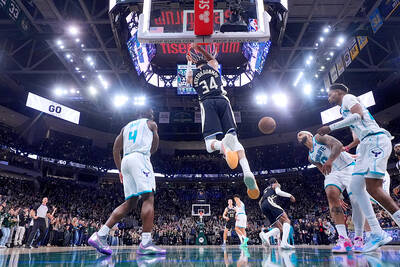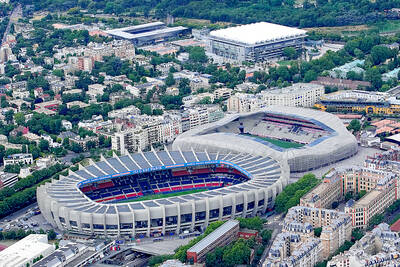The absence of fans did not cause players to doubt themselves, but did make referees think twice, a study of behind-closed-doors soccer has found.
Playing matches without supporters had a minimal effect on the phenomenon of home advantage, but it did correspond with officials showing fewer yellow cards to away teams, researchers from Reading University found.
In a paper on the effects of behind-closed-doors matches, researchers studied 6,481 games from before and after COVID-19 lockdowns.
In the Premier League and EFL Championship, games played in empty stadiums saw the proportion of home victories drop from 43.4 percent before the pandemic to 42 percent.
This small fall was similar to results in many other leagues that restarted behind closed doors.
After seeing a substantial drop in home advantage during early matches, the Bundesliga ended the season with the prospect of a home win having fallen from 40.8 percent to 39.2 percent.
A similar pattern was observed in Spain, while home advantage increased in Italy from 42.9 percent to 43.1 percent.
“While we saw some loss of home advantage in the early matches, things reverted in last few weeks,” said James Reade, an associate professor at the university who conducted the research. “Maybe it’s all about familiarity.”
The effect of a crowd on sporting performance is a longstanding area of research. The obvious explanation for home advantage has always been that a crowd gees on its team and intimidates opponents.
Other arguments include familiarity with surroundings and the possibility of fatigue in a traveling team.
“It’s hard to imagine that fatigue is too much of a factor any more, especially not in elite sport,” Reade said. “With the absence of fans not affecting results much either, that leaves familiarity.”
“Results changed to begin with when players stepped out into their empty stadium, but that stopped as people got used to it,” he said.
However, Reade and his colleague Carl Singleton did find that the absence of the crowd tallied with a drop in yellow cards given to away teams.
In England the study found that the number awarded to all players fell during the restart, but that on average away teams received half a yellow card less than before lockdown.

BOUNCING BACK: Antetokounmpo had just returned from an eight-game injury absence last month, leading the Milwaukee Bucks to their third win in four games Giannis Antetokounmpo threw down the game-winning dunk with 4.7 seconds remaining to lift the Milwaukee Bucks to a 122-121 victory over the Charlotte Hornets and grab a slice of NBA history on Friday. The Bucks trailed by as many as 16 on their home floor, but Antetokounmpo scored 12 of his 30 points in the final quarter to help seal the win in a frantic finish that saw five lead changes in the final 45.7 seconds. The two-time NBA Most Valuable Player (MVP) added 10 rebounds and five assists. It was his 158th regular-season game with at least 30 points, 10 rebounds and

For the first time in almost 36 years, a Parisian derby will be played in French soccer’s top flight when reigning champions Paris Saint-Germain FC take on the nouveau riche Paris Football Club (PFC) today. Not one of the players involved in today’s match — PFC’s 38-year-old third-choice goalkeeper Remy Riou is almost certainly not going to be involved — was born the last time there was a Parisian derby in Ligue 1. That was on Feb. 25, 1990, when Moroccan midfielder Aziz Bouderbala scored a brace as Racing Paris 1 beat PSG 2-1 at the Parc des Princes home that

Stan Wawrinka’s 40-year-old legs did not let him down over three-plus hours in his first singles match of a farewell tour yesterday. Three-time Grand Slam singles champion Wawrinka beat Arthur Rinderknech of France, who is ranked 29th to Wawrinka’s 157th, 5-7, 7-6 (5), 7-6 (5). The match went 3 hours, 16 minutes. Wawrinka last month announced that this year would be his last on the ATP tour. “Today was a tough battle ... it’s amazing to come here for the first time, to have so much support,” Wawrinka said yesterday. “Twenty years on tour, you kind of always play in the same place

Manchester City have confirmed defender Josko Gvardiol suffered a broken leg in Sunday’s 1-1 draw with Chelsea at the Etihad Stadium. Gvardiol was one of two City centerbacks who went off injured in the second half, along with Ruben Dias, before Enzo Fernandez scored a stoppage-time equalizer for the visitors. The draw left second-placed City six points behind English Premier League leaders Arsenal. City, announcing Gvardiol sustained a tibial fracture to his right leg, added in a statement issued on Monday: “The defender will have surgery later this week and assessment remains ongoing to ascertain the full extent of the